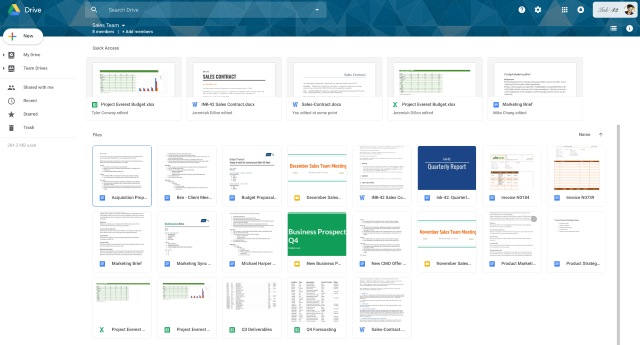
Google Drive gets a major redesign to match the look of the new Gmail
Following on from the redesign of Gmail, Google has start to roll out a new interface to Google Drive. The new user interface can be found on the web version of the cloud storage service, but it's likely that mobile apps will follow suit.
Google hasn't made much of a fuss about this redesign, but keeping things in line with other G Suite products makes a lot of sense. The redesign sees the arrival of an updated material look.

Google launches Android Jetpack to speed up app development
Google has a new tool designed to help developers produce Android apps faster than ever. Called Android Jetpack, it builds on the Support Library and has a strong focus on backwards compatibility.
Android Jetpack also builds on Architecture Components, giving developers access to components, tools and architectural guidance split into four categories -- architecture, foundation, UI and behavior. Each component is provided as an "unbundled" library which Google says means you can "adopt each component at your own speed, at your own time".
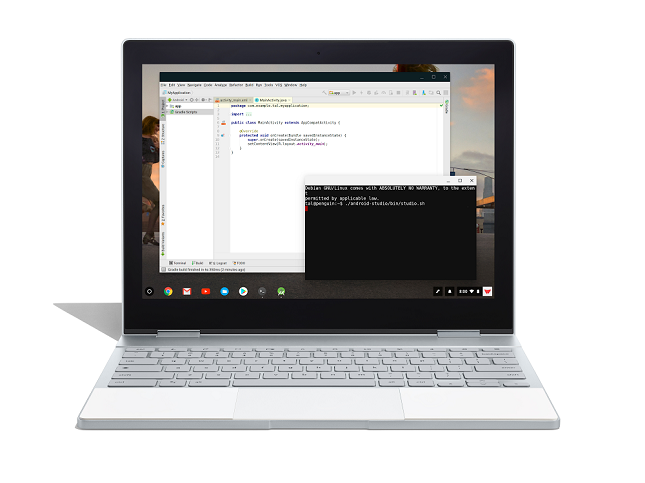
Google's Chrome OS getting support for traditional Linux apps, but don't get excited just yet
Google is a big supporter and user of Linux. Android, for instance, is the most popular Linux-based distribution in the world. Mobile aside, the search giant also leverages the open source kernel for its desktop operating system -- Chrome OS. While some Linux purists decry calling Google's operating systems "Linux," it simply cannot be denied. They are Linux.
I can understand some people suggesting traditional Linux distributions like Ubuntu or Fedora, but Chrome OS -- and the Chromebooks on which it runs -- is arguably more secure while also being easier to use. If I had to choose one operating system for accessing bank websites, for instance, I'd choose Chrome OS over any other. Unfortunately, its limited nature -- which makes it secure and easy to use -- also hinders power users. Sometimes a web or Android app just won't cut it. Well, folks, thankfully the rumors were true -- traditional Linux programs are coming to Chrome OS!
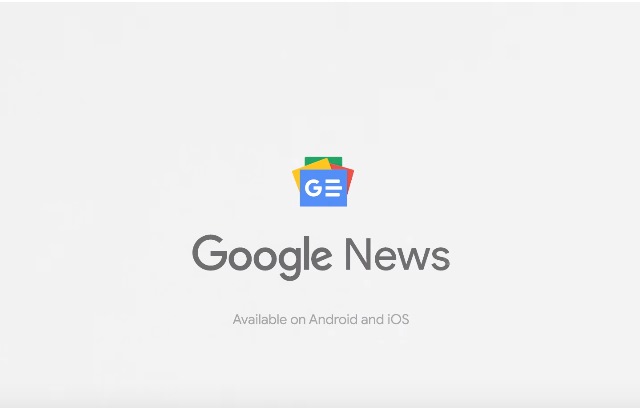
Google News gets a major revamp and an AI injection
Today at its I/O developer conference, Google revealed major changes for Google News. The company says that the revamp combines the best of artificial intelligence with the best of human intelligence, and it sees Google try to rebuild the trust people have in online news.
As well as a revamp of the underlying technology, there are also changes in presentation. A "For You" section in the app provides easy access to the most relevant stories that will be of personal interest, and there are also new opportunities for readers to delve deeper into stories via various news outlets, social media, videos and more via a new timeline tool.
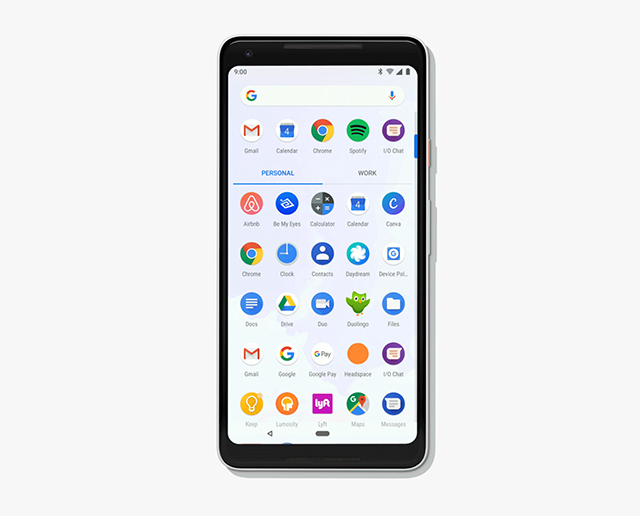
Android P: Smarter and simpler than ever
Today at Google I/O, the search giant unveiled a beta version of Android P, the next release of its mobile operating system.
This future OS makes good use of machine learning in a number of ways, including Adaptive Battery, which prioritizes battery power for the apps and services you use the most, and Adaptive Brightness, which learns how you like to set the brightness based on your surroundings.
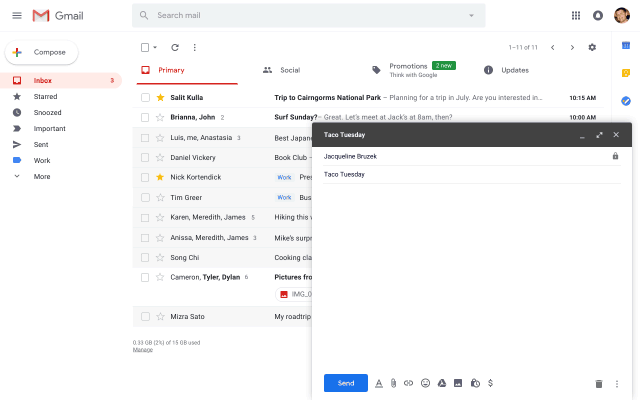
Gmail's new 'Smart Compose' feature writes replies for you
Google’s I/O developer conference is underway and there will be plenty of announcements coming from the search giant.
Hot on the heels of the big makeover for Gmail comes news of another powerful new feature for the webmail service. Smart Compose uses machine learning to help you write responses to emails. It’s a step beyond the Smart Reply feature the company introduced last year.
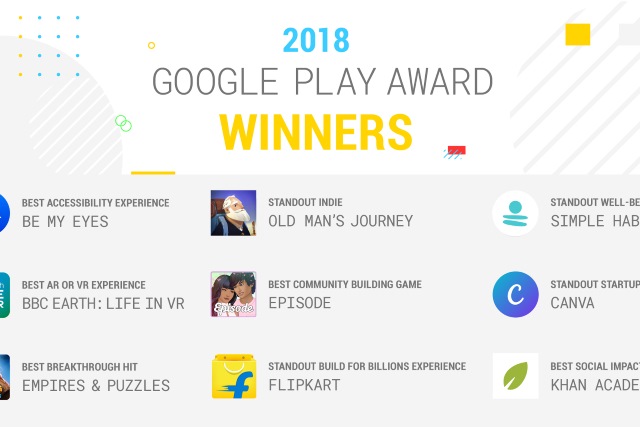
The best Android apps and games revealed in 2018 Google Play Awards
It's not long since Google's Android Excellence program bestowed praise on apps and games on what were considered to offer a high quality experience. Now the company has used Google I/O to reveal the winners of the 2018 Google Play Awards.
Google says that the aim of the ceremony is to "recognize the best apps and games on Google Play over the past year", and it's a great way to discover something new to try.

Android Things exits beta as Google jumps further into the IoT
Google today announced the launch of Android Things 1.0, its Internet of Things platform. There have been numerous beta versions for developers to play with, but now that the operating system has been officially launched we can expect to see it popping up on a wide range of devices.
The company says that it has been working closely with a number of manufacturers to help ensure that products will be available soon. On the horizon are smart speakers from LG and iHome, as well as smart displays from Lenovo, LG, and JBL.

Google makes VR positional-tracking tool 'Seurat' open source on GitHub
Technology companies have been telling us virtual reality will change the world for decades now. While VR has become more popular in recent years, it is still a niche market. Virtual reality will probably become mainstream in the future, but until prices come down even further, it will remain a hobby for enthusiasts.
With that said, Google is still banking on virtual reality, especially with its Daydream initiative. Today, the search giant is making a VR positional-tracking tool called "Seurat" open source. The code is being hosted on GitHub.

Following Apple's lead from 2016, Microsoft, Facebook and Google replace gun emoji with water pistol
It is now two years since Apple decided that an image of a gun had no place as an emoji. The company replaced the handgun icon with an image of a water pistol, leading to a debate about whether it was the right thing to do.
With further serious shootings and gun crimes bringing firearms into the spotlight time and time again, more technology companies decided to follow suit. The latest names to follow Apple's lead are Microsoft, Facebook and Google, all of whom plan to kill the gun emoji and replace it with a water pistol.
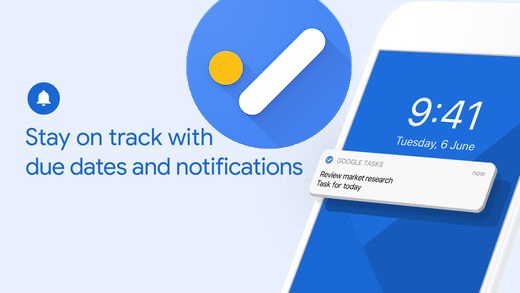
Google launches Tasks app for iOS and Android, revamps web version
The big news from Google today is the launch of the redesigned Gmail, but it's not the only news. The company has also launched a new app called Tasks which -- no prizes for guessing -- allows for management of to-do lists.
The Google Tasks service is nothing new, and it has been accessible from Gmail inboxes and Google Calendar for quite some time, but this is the first time there has been a dedicated app for it. As well as the app, there's also a revamp of the web-based version of Tasks.

Google rolls out massive Gmail redesign -- here's what's new and how to access it
We've known for a little while that Google was planning a major overhaul of Gmail -- complete with a host of new features -- and now the big day has arrived. The most obvious change is the new look which is more in keeping with the aesthetics of Material Design, but it's the new features that Google is most keen to talk about.
While the company says that the aim of the update is "to help people be more productive at work", the new features are available to everyone starting now. What do you have to look forward to? Nudges, Smart Replies, email snoozing, action buttons and more.

Discovery of Terminal app for Chrome OS suggests future support for Linux software
Chrome OS is a fairly flexible operating system, and its support for Android apps via the Google Play Store opens up a world of software. It has been thought -- and hoped -- for some time that Linux support might be on its way, and this is looking increasingly likely.
A Terminal app has appeared in the Chrome OS dev channel, strongly suggesting that support for Linux applications could well be on the horizon -- something which will give Chromebooks a new appeal.

I cut the cord and switched to YouTube TV -- I couldn't be happier [Review]
For 2018, I decided to take stock in my finances to see exactly where my money is going each month. I found many ways to cut costs, such as making my own lunch instead of buying something from a deli each day. In New York, a sandwich, bag of chips, and a Snapple can easily run you $13! Food aside, there was one thing in particular that was really destroying my budget -- cable.
When I say cable, I am referring to the traditional "triple play" service, where you get television, internet, and phone. For this, I was paying over $200 a month! This was without any premium channels -- no HBO, Starz, or Showtime. The most ridiculous part? I was being charged monthly rental fees for the cable boxes and modem. Well, enough was enough. Thanks to YouTube TV, I "cut the cord" and I couldn't be happier.

Google pauses development of Allo in favor of RCS Chat
Google has had no shortage of chat and messaging tools over the years, and the company just added another one to its list. Google's Chat is based on the RCS (Universal Profile for Rich Communication Services) protocol which it is hoped will succeed SMS.
The company is hitting pause on Allo -- which only launched towards the end of 2016 -- to focus resources on RCS. Google is transferring "almost all" of the team currently working on Allo to Android Messages which will ultimately feature Chat, its own RCS implementation.
